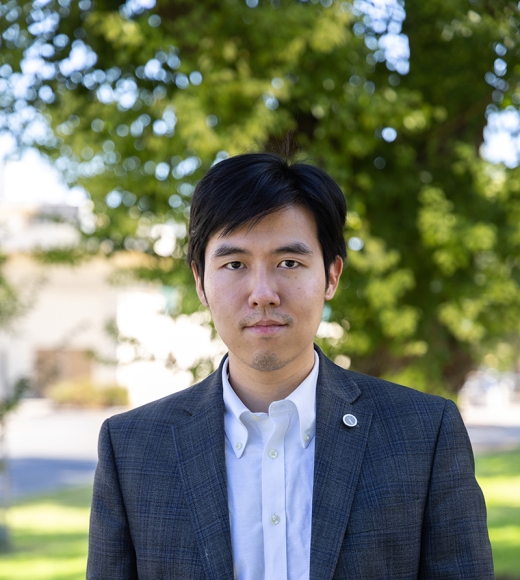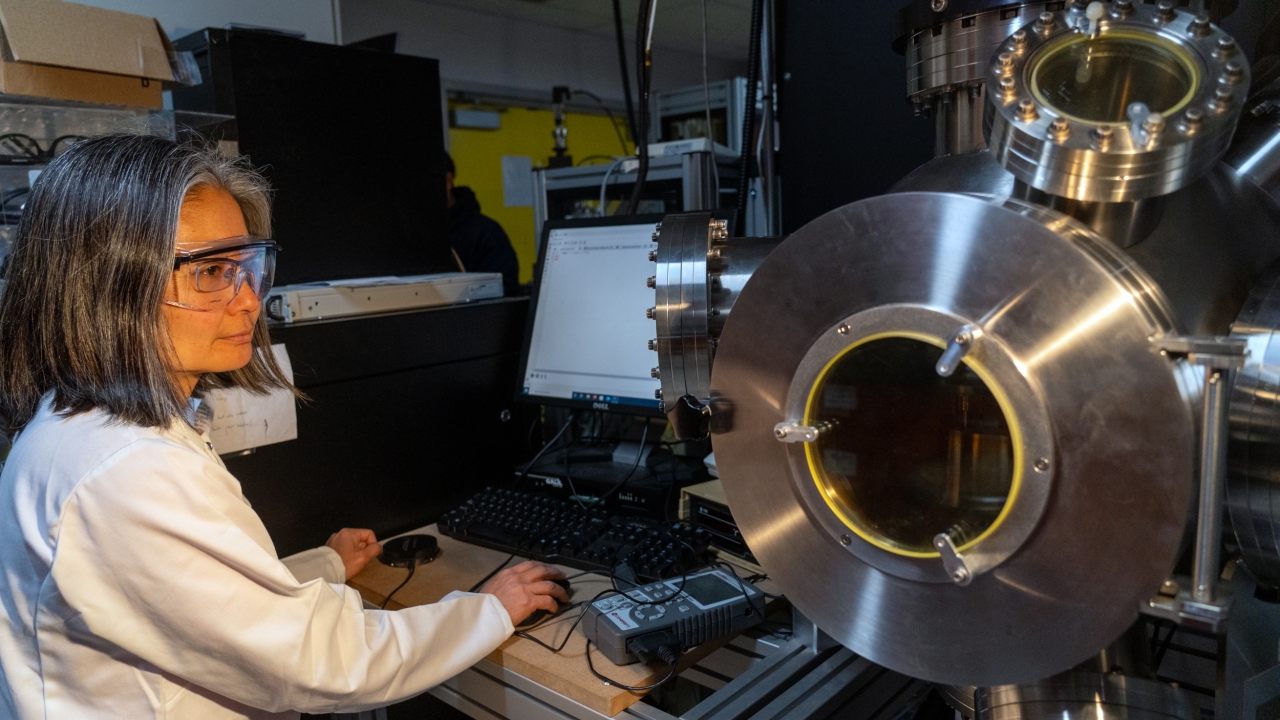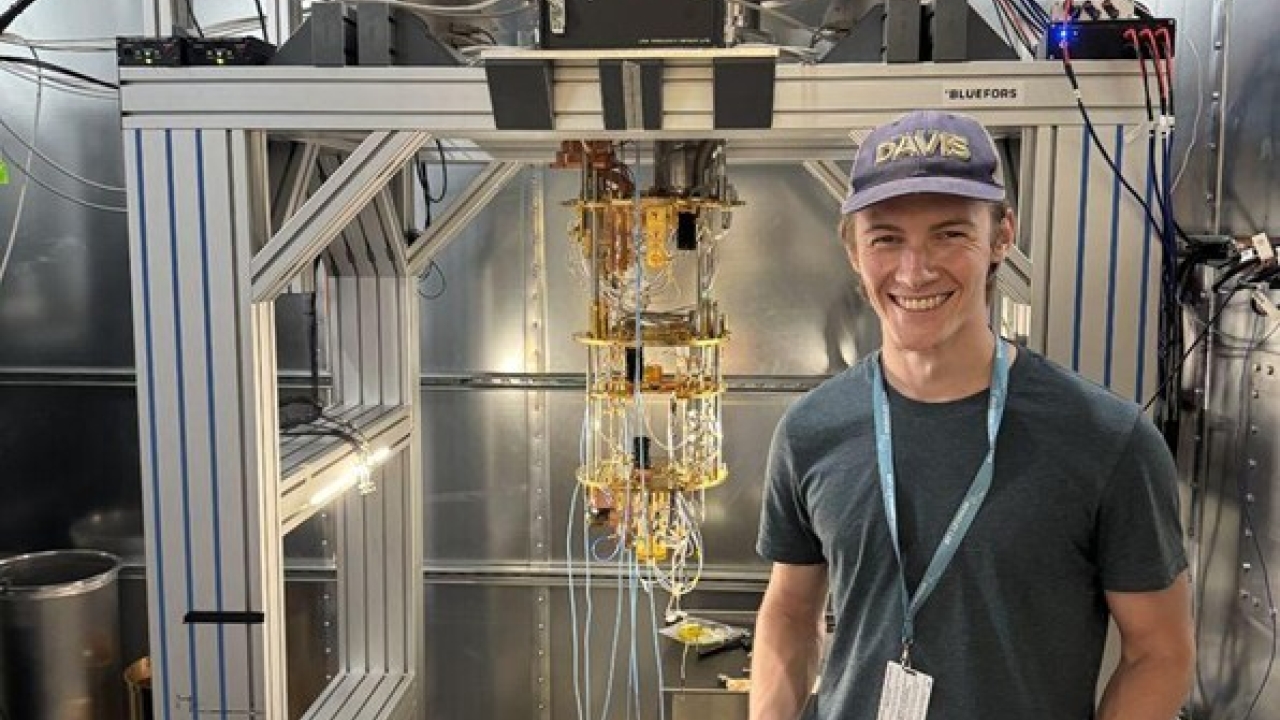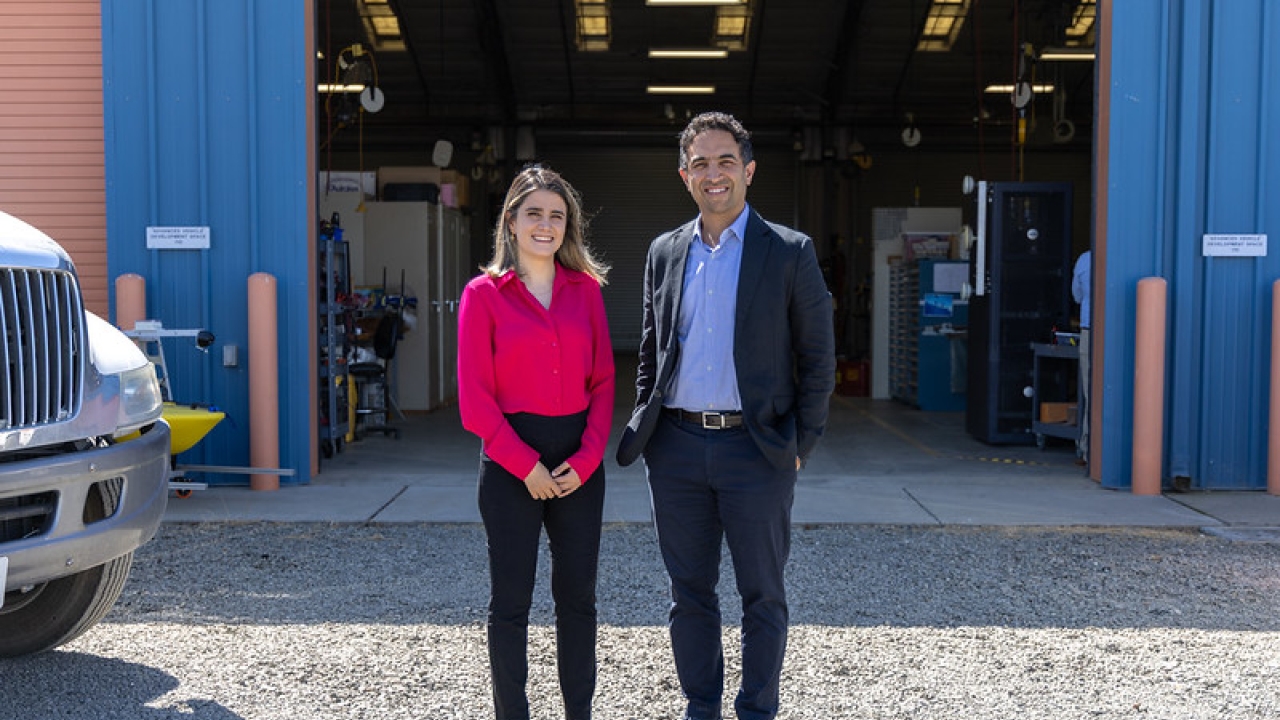Mingwei Zhang Receives Early Career Research Award from Department of Energy
The U.S. Department of Energy, or DOE, has selected Mingwei Zhang, an assistant professor of materials science and engineering at the University of California, Davis, as an awardee of its 2024 Early Career Research Program.

The award aims to support early-career faculty and researchers in making cutting-edge developments to solidify America's role as the driver of science and innovation around the world.
"This is a very prestigious award," said Zhang. "It means a lot to me because it means I have done some good work in the field and that I have proposed a good plan to really push science forward."
The DOE's Basic Energy Sciences Division is giving Zhang over $900,000 to investigate the properties of refractory complex concentrated alloys, or RCCAs, a new class of metals that show promise as the next generation of high-temperature materials, surpassing the capabilities of current nickel-based superalloys.
Zhang will use a variety of methods, including materials processing and high-temperature mechanical testing in a vacuum, as well as 4-dimensional Scanning Transmission Electron Microscopy, an advanced imaging technique in which a focused beam of electrons is scanned across a thin sample and provides images and data about the material's atomic structure and composition.
Zhang will also use in-situ neutron diffraction, in which a beam of neutrons is directed at the material while it is undergoing various conditions such as stress or high temperatures.
These experiments will reveal key information about how RCCAs deform and break, as well as the distribution and concentration of vacancies — which reduce strength and contribute to the slow deformation of a material under constant stress at high temperatures — and dislocations, or line defects that can help absorb and dissipate energy during deformation and contribute to a material's toughness, in the material's structure.
With this information, Zhang will build a fundamental framework for understanding the strengths and weaknesses of RCCAs, which can be built upon to create a new generation of metal alloys.
"These new RCCAs are weird," said Zhang. "If we understand the origin of all those weird phenomena, we can make use of that science and design our new materials out of those principles and make stronger and tougher materials to serve at very high temperatures."





